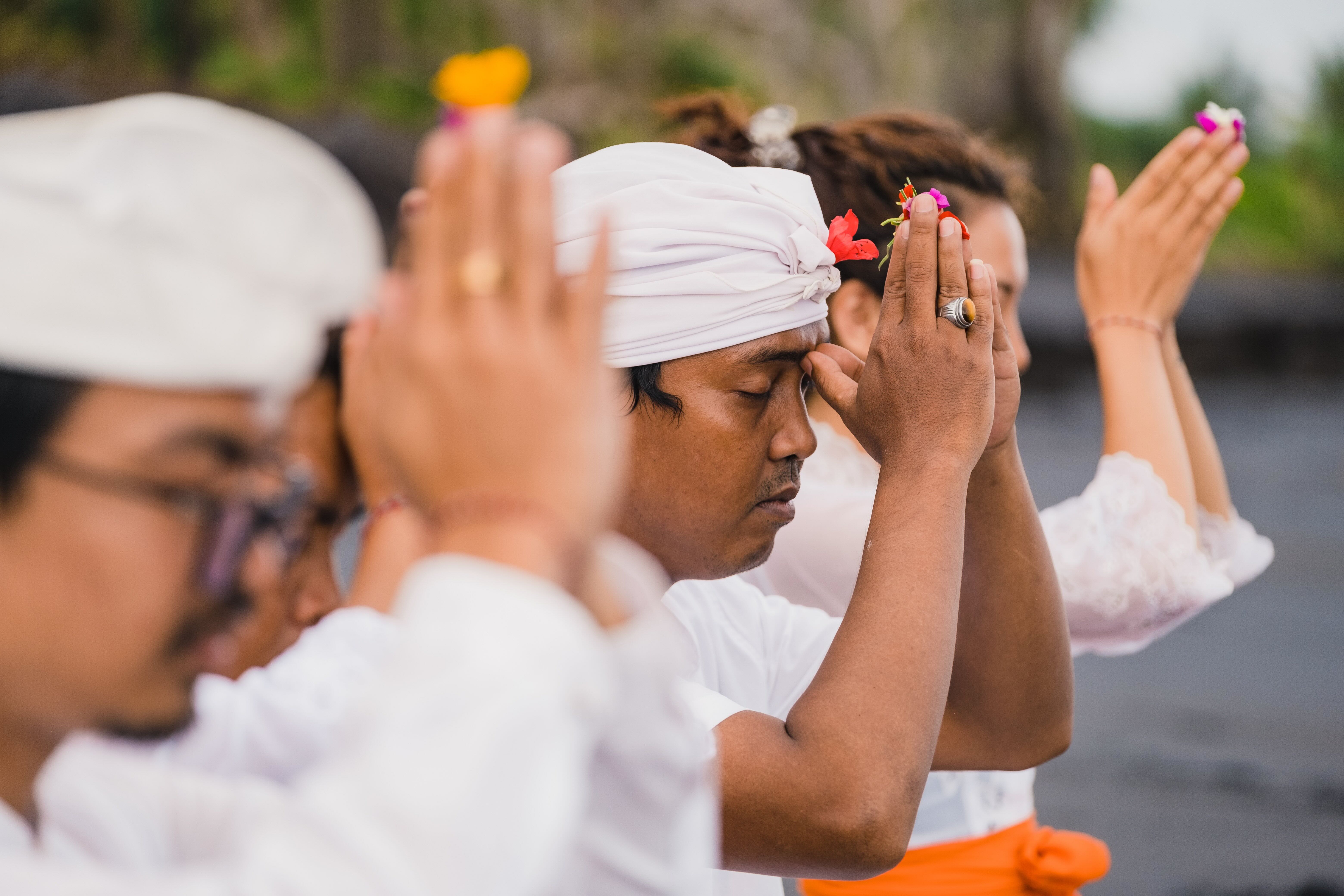18 March 2025
Have You Heard About Nyepi?
4 Minutes Read

Imagine an entire island pressing the reset button, embracing stillness and peace. It’s a once-in-a-lifetime experience that leaves a lasting impression on everyone who witnesses it.
What is Nyepi?
Nyepi is more than just a day of silence—it’s a spiritual reset for the Balinese Hindu community, a time for deep reflection and purification. The day symbolizes cleansing the island from past negativity and preparing for a fresh, positive start. It is one of the most unique cultural experiences in Bali and a must-know event if you live or travel here.
When is it happening?
Nyepi does not fall on the same date every year, as it follows the Balinese lunar-based Saka Calendar. In 2025, Nyepi will begin at 6:00 AM on Sunday, March 29, and end at 6:00 AM on Monday, March 30. If you’re planning to leave or arrive in Bali around this time, you’ll need to plan ahead since businesses will be closed and travel is restricted.
Who celebrates Nyepi?
While Nyepi is a Balinese Hindu tradition, everyone on the island—locals, expats, and tourists alike—must observe the silence. This means no travel, no work, no entertainment, and minimal light usage. Hotels and villas operate at limited capacity, and all roads are patrolled by Pecalang, the traditional security guards, to ensure compliance.
What happens before & during Nyepi?
Nyepi is part of a series of rituals leading up to the New Year, each with its own significance:
1. Melasti Ceremony
A few days before Nyepi, the Melasti Ceremony takes place. This is a purification ritual where sacred objects from temples are carried in grand processions to the sea, lakes, or rivers, believed to be sources of spiritual cleansing. If you’re on the road during this time, expect traffic disruptions as entire communities participate in the ritual. The best way to experience this is to visit a beach or a river and witness the deeply spiritual cleansing process.
2. Ogoh-Ogoh Parade (Tawur Kesanga)
The night before Nyepi, the streets come alive with the Ogoh-Ogoh Parade, an electrifying street festival featuring giant demon-like effigies carried through the streets. These hand-crafted giants represent evil spirits and negative energies, which are later set on fire to symbolize their banishment. It’s one of the most exciting cultural events in Bali and a must-see if you’re in town.
During this time, roads may be temporarily closed due to the parade. If you have important meetings or errands, be sure to plan ahead and finish early to avoid disruptions.3. The Day of Silence
From 6:00 AM on Nyepi day, everything stops. The internet and mobile networks might also be temporarily down, so don’t count on being online. Shops, restaurants, and entertainment venues are all closed. It's a time for reflection, meditation, and rest.
You can use this rare moment of peace to:
- Disconnect from technology and enjoy some quality time
- Read, journal, or meditate without distractions
- Stargaze - without artificial lights, Bali's night sky is breathtaking.
When the night comes, you might feel a bit uneasy because the entire land is in complete darkness. But, don't worry! You can still use dim lights inside your home, as long as your curtains are drawn. This is a great opportunity to step outside and admire a sky full of starts like you've never seen before.
However, the emergency services such as hospitals will still be operational, so rest assured that essential care is available.
4. The Day After Nyepi (Ngembak Geni)
On the day following Nyepi, life gradually returns to normal. Families visit one another to ask for forgiveness and start anew. Many Balinese Hindus also continue their prayers and ceremonies as a celebration of overcoming temptations, negativity, and evil spirits during the silent day.
Useful tips for Nyepi in Bali
- Stock up on food and essentials at least a day before Nyepi.
- Respect the local customs - even if you're just visiting, stay indoors and keep noise to a minimum.
- Keep your lights dim and curtains drawn at night.
- Inform your friends and family about potential communication blackouts.
- If you prefer a livelier atmosphere, plan a trip outside Bali in advance.
Nyepi is one of the most special and spiritual experiences in Bali. Whether you observe it fully or simply enjoy the peaceful ambiance, it's a reminder of the importance of rest, reflection, and renewal. If you embrace the silence and take time for yourself, you might find it to be one of the most unforgettable days of your life.
Follow us for more information about property in Bali and Bali lifestyle: Instagram | LinkedIn | Facebook | WhatsApp
Share This Article to :